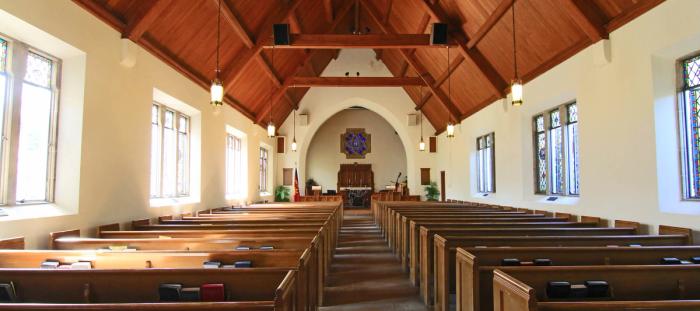A comment on my blog, Housewife Theologian, led me to write a whole chapter on the topic of men learning from women:[1]
“Do you believe it is okay for a woman to think and write about theology, given she will also be read by men such as myself? If so, why is it not allowed for a woman to preach?”
I get questions like this often. It is curious that most men are not called to the offices of ruling or teaching elder either, but we do not question whether we can learn from men. It further perplexes me because we have women “tradents,” who think through and pass down theology and tradition, throughout Scripture, for a co-ed readership.
So clearly God has ordained for women to be active traditioners and for men to learn from women. We have whole books of the Bible, Esther and Ruth, which give us a female voice in passing down the stories of God’s redemption. We have the midwives, Shiphrah and Puah, who refused to kill the Israelite boys who were born, teaching us about proper fear of the Lord (Exodus 1:15-21). The names of two midwives, who would otherwise have been forgotten, make it into Scripture, whereas the name of the Pharaoh is not recorded. How did Moses obtain this account? How were the names of these women preserved?
We see another example of female sources passing down history that is recorded in Scripture with the daughters of Israel commemorating the life and death of Jephthah’s daughter (Judges 11:40).[2] They have kept her memory alive, even to our generation. With their great faith, both Rahab (Josh. 2) and the Canaanite woman who convinces Jesus to heal her daughter (Matt 15:21-28) foreshadow the Great Commission for us, the blessing of salvation to all nations. These are just a few examples of women in Scripture whom both men and women learn from.
In her book, Choosing the Better Part? Women in the Gospel of Luke, Barbara Reid observes, “The first two chapters of Luke invite the reader into the world of women and begin the story of Jesus from their perspective.”[3] The only males present in this section of Scripture are in the womb. How did Luke learn of this version of events? By adding this perspective to his gospel from female sources, Luke enriches us with what the male-only version was lacking. With the women’s perspective, we often get the story behind the story.
Women teach some of the most wondrous theology in Scripture. Look at the prayer of Hannah and also Mary’s Magnificat. Here we have two women teaching us rich theology about praise, the holiness of God, his extraordinary mercy, our salvation in the Lord, his unwavering faithfulness to his people, and God’s sovereignty and power in his will and in his judgments.[4] The two theological treatises have many similarities as they are praising the same God, pointing to the same Savior, and Mary has clearly adopted some of Hannah’s expressions in doing so. Both women reveal a living faith that is connected to competency in God’s Word.
And we have to ask where Matthew, Mark, and Luke learned key details of their gospel history of the crucifixion and resurrection of the Christ. Calvin asserts that in “proclaim[ing] the gospel, they must have borrowed from women the chief portion of the history.”[5] While all of the disciples except for John fled in desertion, even Peter denying Jesus three times, “Many women were there looking on from a distance, who had followed Jesus from Galilee while ministering to Him” (Matt. 27:55).
These women were there through all the horror including hours of darkness, the Son of God mocked and given sour wine, struggling for his next breath, and crying out to the Father, “My God, My God, why have You forsaken Me?” These women not only witnessed all of the ghastly details of the crucifixion, but also were eager to attend to his dead body in the tomb with spices and ointments.
Jesus first appears to women in his resurrected body and gives them the great honor of sharing the good news with the other disciples that he is risen! The first utterances of the gospel came from a woman. I’d call that teaching. And God gives women this honor during a time when a woman’s testimony was not trusted.
Did these sections of Scripture somehow slip into the canon accidentally?
In his book Gospel Women, Richard Bauckham encourages, “Rather than viewing these texts as surprising survivors of the attempt to suppress such literature, we may reasonably suppose that the importance of women in the grassroots process of canonical selection led to their inclusion precisely as women’s literature, in order to counterbalance the androcentrism of the rest of Scripture.”[6] We see women in Scripture connected to the body of faith, treasuring, meditating on, acting on, and passing down God’s Word. Both sexes are blessed by and benefit from this teaching.
Bauckham points out that these “gynocentric interruptions” in Scripture correct any promotion of androcentrism.[7] So the canon of Scripture answers my opening question. Women are heard. They are more than heard; they contribute. They teach. And these female-focused texts are rich with doctrine-meets-real life, history-meets-experience, and depth of insight.
No, women were not left out of active traditioning in testifying to and passing down the faith. The women’s literature that we find in Scripture is not accidental.[8] Women have a voice in God’s Word, and women were certainly included in the process of recognizing and retrieving God’s Word to his people throughout the history of the process of the formation of the canon of Scripture. Let’s praise God for this and discuss how that is reflected in our reading, studying, and discipling in God’s Word in our churches today.
[1] See Aimee Byrd, No Little Women (Phillipsburg, NJ: P&R, 2016).
[2] Thanks to James Duguid for pointing this one out to me.
[3] B.E. Reid, Choosing the Better Part? Women in the Gospel of Luke (Collegeville, Minn.: Liturgical, 1996), 55, quoted from Richard Bauckham, Gospel Women (Grand Rapids: Eerdmans, 2002), 47.
[4] See Byrd, No Little Women, 143-144.
[5] John Calvin, Commentary on the Harmony of the Evangelists, Matthew, Mark, and Luke, vol.3, in Harmony of Matthew, Mark, Luke, John 1-11, trans. William Pringle, Calvin’s Commentaries 17 (repr., Grand Rapids: Baker, 2003), 329 (emphasis original).
[6] Bauckham, Gospel Women, 16.
[7] See Bauckham, Gospel Women, 15.
[8] Ibid., 16.






